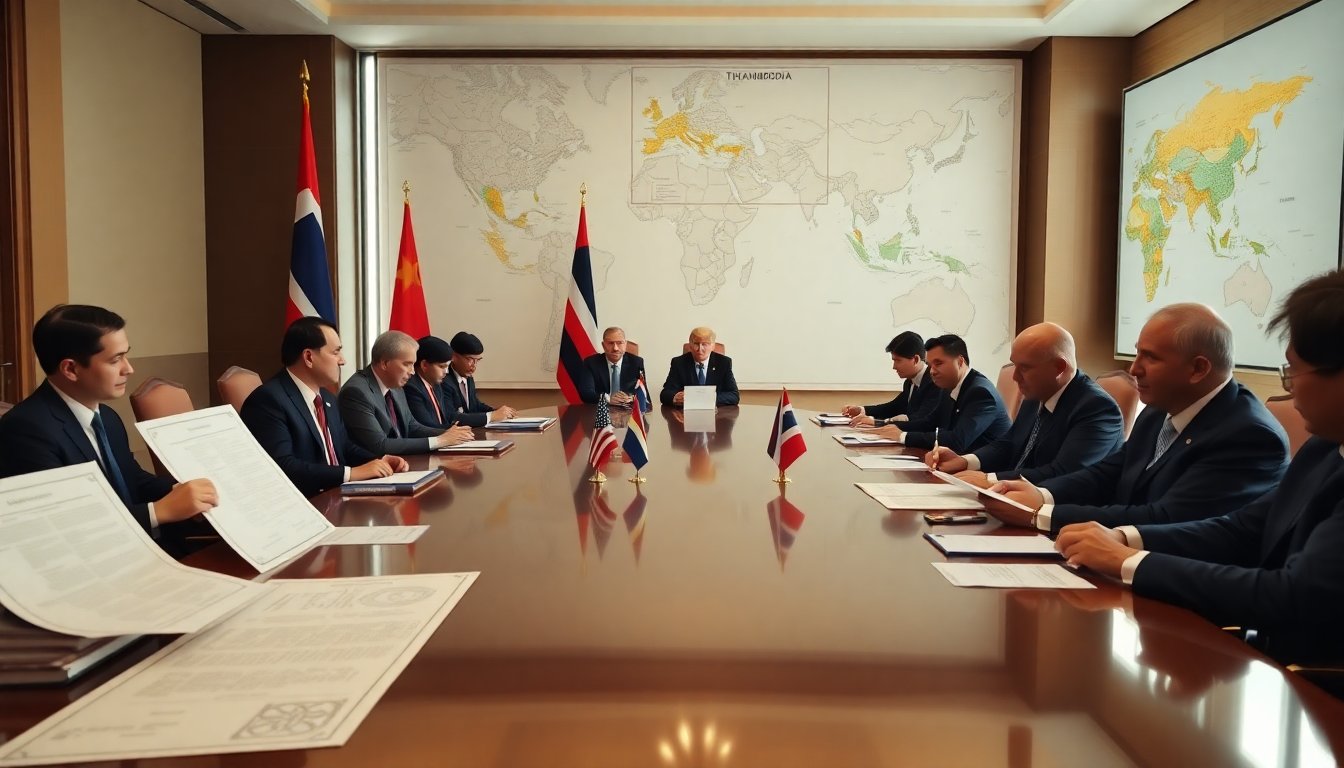Table of Contents
In a significant diplomatic development, President Trump has played a pivotal role in brokering an expanded ceasefire agreement between Thailand and Cambodia. This agreement aims to address the ongoing border conflict that has resulted in numerous casualties and the displacement of many civilians. The formalization occurred during a recent summit, underscoring the importance of international cooperation in conflict resolution.
The ceasefire agreement marks a crucial step towards restoring peace and stability in the region. The conflict escalated earlier in the summer, leading to loss of lives and forcing hundreds of thousands to flee their homes. The situation required intervention from external powers, with President Trump utilizing his influence to encourage both nations to reach a compromise.
The signing of the ceasefire agreement
On Sunday, Cambodian Prime Minister Hun Manet and Thai Prime Minister Anutin Charnvirakul officially signed the expanded ceasefire agreement at the Association of Southeast Asian Nations (ASEAN) summit. This pivotal event marked a moment of hope for both nations, signaling a commitment to peaceful dialogue over military confrontation. President Trump was present to witness this significant milestone, emphasizing the role of U.S. diplomacy in Southeast Asian affairs.
Key provisions of the agreement
The terms of the newly signed agreement are comprehensive. One primary stipulation is the release of 18 Cambodian soldiers detained by Thai authorities. This measure aims to build goodwill between the two countries and foster a spirit of cooperation. Furthermore, the agreement mandates the removal of heavy weaponry along the border, a longstanding source of tension and conflict.
President Trump’s involvement in negotiating this ceasefire reflects a broader strategy to enhance U.S. influence in the region. By leveraging economic tools, such as the threat of increased tariffs, he was able to encourage both parties to negotiate. The humanitarian aspect of this agreement promises to improve the lives of those affected by the conflict.
ASEAN summit highlights
The ASEAN summit serves as a critical platform for discussing regional cooperation, trade, and security issues. This year’s summit, attended by multiple world leaders, focused on enhancing relationships between member states and addressing external challenges. In addition to the ceasefire agreement, discussions covered multilateral trade and security measures aimed at promoting stability in Southeast Asia.
Global implications
The implications of the Thailand-Cambodia ceasefire extend beyond the immediate region. As global leaders gather to discuss trade relations, President Trump’s presence at the summit underscores the interconnectedness of regional security and global economic stability. Ongoing trade tensions, particularly with China, complicate the landscape, making diplomatic efforts increasingly critical.
In this context, the ceasefire agreement not only brings relief to those affected by the conflict but also signifies a step towards greater regional harmony. As nations within ASEAN work to strengthen ties, the success of this agreement may serve as a model for resolving similar disputes in the future.


